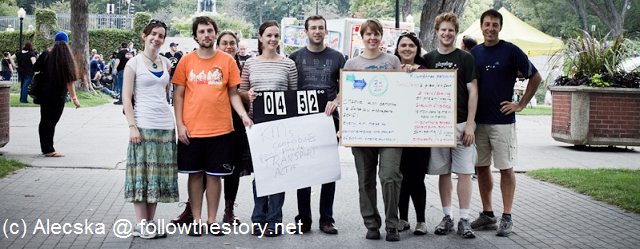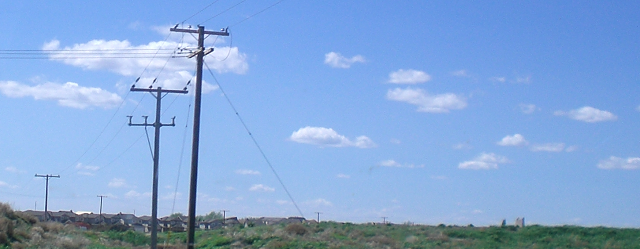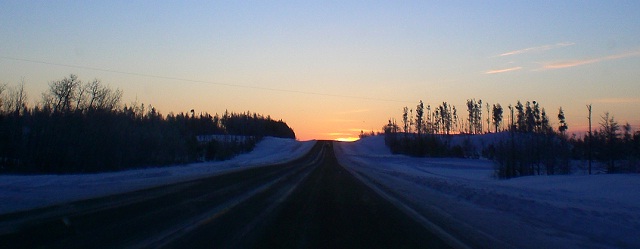Preface This document is a response to the draft documents posted as part of the Design Regina process. The authors of this response are also the primary authors of Transforming Regina: Planning for 2040 and beyond, which achieved a place in the finals of the Regina Morph My City competition. Readers interested in a detailed […]
Tag: Green
Moving Planet Montreal video by Developing Pictures
A wonderful video about Moving Planet Montreal was created by Alex Pritz of Developing Pictures. The video features Ben Harack in his first-ever YouTube appearance!

Moving Planet Montreal
Moving Planet Montreal was a celebration of the transition away from fossil fuels in our society. The event was a green kilometer drive and a grand picnic, symbolizing the central role of transportation and food in sustainability.
Envisioning a Green Life: 10 ways you can make a difference
Simple, practical advice on how to live a green life. Based on years of research and thought on the matter by the Vision of Earth team.
How healthy is Canada’s political market?
Looking at Canadian politics as a market, it is clear that left-leaning voters in Canada have a lot more choices at the ballot box than do their conservative counterparts. The melding of fiscal and social conservatism has left conservative voters with only one real option during elections. We might summarize this as a ‘Monopoly on conservatism in Canada’.

Opportunities and perils of natural gas usage on the road to renewables
Our increasing reliance on natural gas brings with it both opportunities and dangers during the shift towards renewable energy. This issue deals with some major issues regarding natural gas deployment in industry, power generation, food production, and heating.
John Klein: Social involvement and sustainability in Regina, Saskatchewan, and Canada
John Klein is a notable blogger and community activist in Regina, Saskatchewan. Here he answers our philosophical and practical questions about the most important issues facing our society today, and what each of us can do about them.

A renewed look at 2010, a sustainable vision for 2011
Here we review major renewable energy topics from 2010 and then turn towards analyzing energy issues for 2011 and beyond.

Curtis Dorosh: Green living, building, and volunteering
How to live green? Build green buildings? Put our efforts towards a better future? Curtis Dorosh has spent much of his life trying to answer these questions. Collected here are some of his answers.
Demand side management to help build a renewable power grid
Demand side management helps make our power grid more cost-effective and aids in the transition towards renewable energy. It can also be considered as a very green policy on its own, as it reduces the amount of power we need to produce, and thus our impact on the environment.
31 Ways to Reduce Paper Usage
Why should we care about our paper usage? For me the key points are that it is an expensive, impermanent storage medium that is made primarily out of those wondrous things we call trees.
Power system performance metrics
Everything has its price. Every form of power production has costs in dollars, time, land, materials, pollutants, greenhouse gas emissions, and human deaths. We look at the most important factors for analyzing the feasibility of a proposed power project. Considering only some of these factors will lead to an incomplete picture of power system costs.
Feed-in tariffs: A fitting policy for renewable energy
Here we talk about what a feed in tariff is and how it works. We also conduct an overview of how effective feed in tariffs have been at stimulating the renewable energy industry around the world.
Interview with wind power guru Paul Gipe
Wind power expert Paul Gipe advocates that we deliberately create our green energy future rather than wait around for it to happen. He says that we should aim to democratize our energy production for a more prosperous future.
How can renewables deliver dispatchable power on demand?
What does dispatchable mean? Why is it important? How do we currently do this? Can renewable energy fulfill this role? What other tricks can we use?
The regulatory battle over coal fly ash heats up
The coal industry has had a history of lobbying against a hazardous waste label for fly ash. Fly ash is toxic enough that the EPA mandated decades ago that it be captured and stored rather than emitted into the atmosphere.
Types of hydroelectric power: How do the dam things work?
Hydroelectricity, or ‘hydro’, is generated from the energy in the water cycle of the earth. The sun evaporates water on the surface of the earth, causing it to rise up to form clouds. Clouds eventually form droplets, which then rain, snow, or hail down to the surface. Water on the surface flows downhill until it evaporates again. During this time it may become trapped in glaciers, lakes, ponds, puddles, or the ocean. Driven by the sun, the water cycle is a truly renewable resource.
Jim Elliott shares his thoughts on sustainability, community, and living green
Jim Elliott is a notable figure in the sustainability movement in Regina and Saskatchewan. He is involved with many environmental action groups, poverty-reduction groups, and the Citizen’s Public Transit Coalition for Regina.
Laura Pfeifer on urban ecology and community leadership
Laura Pfeifer is the founder and editor of Regina Urban Ecology, and is the Regina organizer of Jane’s Walk.
Voluntary and collaborative sustainable development
We believe that voluntary collaborative efforts towards SD are more effective than personal or involuntary efforts towards SD, and this article is intended to describe the major reasons why.